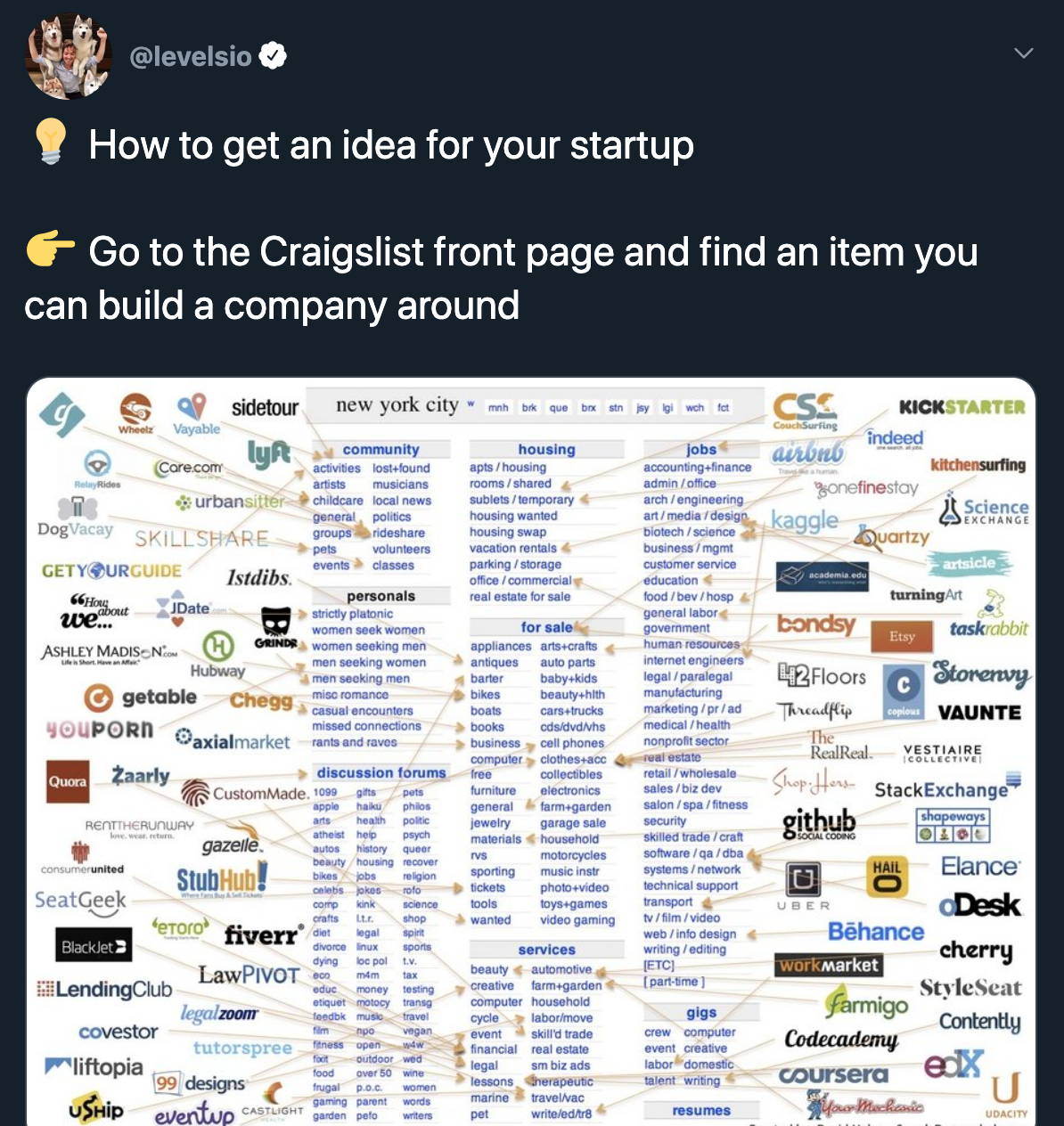So, you’re on the hunt for that game-changing startup idea for 2024 that will catapult you into the entrepreneurial hall of fame. You’ve come to the right place because we’ve scoured the depths of industry knowledge to bring you the ultimate guide to finding startup ideas.
Finding startup ideas involves identifying consumer problems and needs, leveraging personal expertise and experience, analyzing market gaps, utilizing technological advances, adapting to emerging trends, and engaging in collaborative brainstorming. All of these techniques, when combined, can help you uncover innovative and practical business concepts that will position your startup for success in the ever-evolving landscape of 2024.
Stay with us, as we dive deep into each of these aspects and provide insights from top industry experts that will sharpen your entrepreneurial instincts and help you discover your next groundbreaking startup idea.
Identifying Consumer Problems and Needs
The foundation of any successful startup lies in identifying and solving consumers’ problems. As Paul Graham, a renowned startup guru, succinctly puts it, “The way to get startup ideas is not to try to think of startup ideas. It’s to look for problems, preferably problems you have yourself.” Uncovering these pain points allows for the creation of products or services that meet previously unmet needs, hence providing indispensable value.
One effective strategy to spot problems that need solving is immersing oneself in a particular field or industry. Engaging actively with communities both online and in-person can provide a wealth of insights into common problems that consumers face. These problems can be anything from a friction point in a process to a product or service that is subpar. The goal is to search for opportunities where improvement can be made – this is a fertile ground for startup ideas.
Moreover, it is crucial to listen to consumer complaints; they’re gem mines for startup ideas. Complaints are indicators of pain points. Whether you’re scrolling a product’s reviews or conversing with friends and colleagues about their experiences, being observant will open your eyes to problems hidden in plain sight.
Finally, reflect on your own experiences as a consumer. Often, individuals are not merely consumers but also problem solvers, given that they encounter problems daily that nobody is solving. Hence, identifying a problem you have and figuring out a solution could potentially be the next big startup idea! As Paul Graham advises, looking for problems you have yourself is insightful as it’s likely that others have these problems too.
Leveraging Personal Expertise and Experience
The journey of building a startup can be an arduous task. To navigate the tumultuous journey, founders must utilize their unique strengths and experiences. It’s all about aligning with founder-market fit. This means building a business in a market where your knowledge and skills give you an edge over your competitors.
Having relevant experience in a particular sector is a valuable asset. It provides an in-depth understanding of the sector’s intricacies and technicalities, subsequently aiding in identifying customer needs and creating effective solutions. Remember, no one knows your field better than you do.
Personal expertise also helps you navigate the hurdles that come along with running a startup. Able to make informed decisions, reduce error rates, and implement best practices you’ve learned from previous experience are some of the boons of tapping into your personal expertise.
For those set out on venturing into unfamiliar waters, do not be disheartened. You can gain expertise and experience through continuous learning. Whether it’s through reading industry-related literature, attending seminars or workshops, or simply engaging with people in the field, every little bit of knowledge and experience counts and can contribute to your startup’s eventual success. One of our previous articles on how startup funding works goes into detail about venture capital and how understanding this concept can help founders secure funds effectively.
Analyzing Market Gaps
Analyzing market gaps is another stratagem that can lead to innovative startup ideas. Market gaps are essentially opportunities in the market that have been overlooked or underserved by existing businesses. Spotting these gaps and providing solutions to fill them may just be your ticket to entrepreneurial success.
To identify these gaps, conduct detailed market research to understand what solutions are currently available and where they’re lacking. This involves evaluating existing businesses, products, and services within your area of interest. Scrutinize these solutions, look for weaknesses, and brainstorm how they could be improved.
Furthermore, consumer trends, preferences, and shifts are also excellent pointers to market gaps. Changes in laws and regulations and advancements in technology might also render existing solutions obsolete, creating new market gaps. For instance, the rise of remote work due to the COVID-19 pandemic led to a gap in the market for effective remote communication tools. Companies like Zoom and Slack stepped in to fill this gap, reaping significant success.
Listening to customers is also vital when identifying market gaps. Understanding what consumers need and want but are not getting from existing solutions can give insights into potential market gaps. As mentioned in the previous section, customer complaints provide valuable information about areas where the present offering is under-delivering.
Knowing where to focus your energies might just be the difference between a successful startup and a failed one. Analyzing market gaps suggests where you should channel your resources, enabling you to strategize effectively and increase your chances of succeeding. Just like how we discussed in our post How To Start Your Own Tech Startup?, having a clear vision and strategy is crucial!
With these strategies, you’re well on your way to finding startup ideas that might just change the world in 2024.

Source: Andrew Askins
Utilizing Technological Advances
As technology evolves, it opens countless new doors for startup ideas. Leveraging technological advancements is an innovative way to address markets that would be inaccessible otherwise. As pointed out in the insightful Startup School’s YouTube lecture, “Technological advances can provide new opportunities for startups.”
Startups should constantly remain at the forefront of technology, exploring how recent developments could influence or improve their business models, products, or services. Whether it involves using AI to revolutionize customer service, leveraging blockchain tech for new financial transactions, applying VR to digital entertainment, or utilizing IoT for smarter homes and cities, the opportunities are boundless.
Today, we dwell in the age of data. It is crucial for startups to harness the power of the information at their disposal. Businesses can consider advancing data analytics methodologies or implementing machine learning algorithms. The intersection of production, processing, and data analysis provides numerous opportunities for innovative service offering.
A cardinal aspect to consider while using technological advancements is the learning curve for consumers. It is crucial that the new technology is easy to understand and engage with for consumers. User experience is paramount and the role of user interface in bridging the technological gap cannot be overstated.

Adapting to Emerging Trends
Paying close attention to emerging trends across industries can open doors to fresh startup ideas. As shared by Cloudways, founders should always keep an eye on emerging trends in various industries. It’s all about spotting the next wave and riding it!
For a startup to be successful, it needs to be ahead of the curve. Combining technological advancements with trending societal shifts can provide a powerful base for a successful startup.
For instance, consider the increasing consciousness for climate change. A startup that finds innovative ways to create eco-friendly products or reduce carbon emissions could gain considerable traction. Similarly, the shift to remote work driven by the COVID-19 pandemic induced a plethora of opportunities for startups in the virtual collaboration and digital workstation domain.
Predicting trends requires a blend of creativity, insight, and diligent research. It’s crucial to stay up-to-date with the latest developments in your market, both at the macro-level (e.g., political, economic, and social trends) and micro-level (e.g., industry-specific trends or changing consumer preferences).
Collaborative Brainstorming
Engaging with potential users, mentors, and industry professionals can provide a different perspective and help refine startup ideas. Communities, mentorship programs, and collaborative platforms can be invaluable resources for startups.
First-hand user feedback can offer significant insights into problem areas, wants, and how well the product or service meets expectations. This feedback can steer the direction of the startup while keeping it directly responsive to consumer needs and preferences. Similarly, mentors with industry experience can provide business wisdom, strategic advice, and helpful industry networks.
Online brainstorming platforms can be of immense help. They can facilitate efficient brainstorming sessions and potentially open up avenues that may have been missed in isolated brainstorming sessions. Such platforms facilitate the collection and organization of ideas, enabling startups to refine their proposition from inception to execution.
Conclusion
Coming up with startup ideas doesn’t have to be arduous. With strategic approaches like leveraging technological advancements, tuning into emerging trends, and engaging in collaborative brainstorming sessions, the task of finding unique and innovative startup ideas can be made simpler and more effective.
Frequently Asked Questions
How can technological advancements provide new opportunities for startups?
Technological advancements can provide new opportunities by creating different solutions to existing problems, improving efficiency, or opening up new markets. For instance, machine learning could be employed to enhance personalization in eCommerce, or IoT could be used to develop smart homes.
How can startups adapt to emerging trends?
Startups can adapt to emerging trends by understanding the trend’s various facets, including its origins, potential impacts, and possible future developments. They can then align their strategies or innovate their product offerings to suit the trend. This proactive approach could yield significant benefits.
How beneficial is collaborative brainstorming for startups?
Collaborative brainstorming can lead to more diverse ideas, exposure to different perspectives, and faster problem-solving. It can generate feedback that can be used to refine ideas further, validate assumptions, or identify unnoticed gaps.
How can I understand emerging trends?
Staying abreast with industry publications, attending conferences, and engaging with the community can help spot emerging trends. Engagement on platforms like LinkedIn or Twitter, forums, or blogs can also keep one updated on various industry trends.
What role does user experience play with technological advancements?
User experience plays a critical role when implementing new technology. Technological advancements should enhance, not hinder, the user’s interaction with the product or service. Consequently, easy-to-use interfaces, clear instructions, and responsive support can make new technologies more accessible to consumers.





